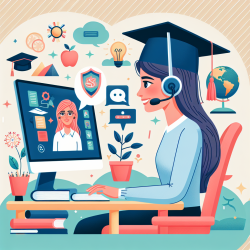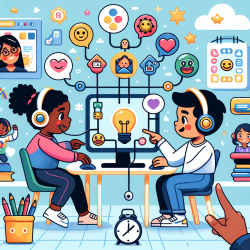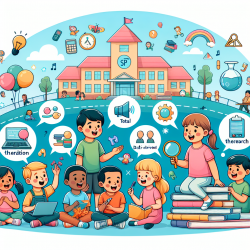The COVID-19 pandemic has presented unique challenges for families and caregivers of children with Autism Spectrum Condition (ASC). According to the research article "Handle the Autism Spectrum Condition during Coronavirus (COVID-19) Stay at Home Period: Ten Tips for Helping Parents and Caregivers of Young Children" by Antonio Narzisi, practitioners can significantly improve their skills and create better outcomes for children by implementing the research-based strategies outlined in the paper.
Here are the ten tips summarized from the research, with additional insights on how practitioners can integrate these into their practice:
1. Explain to Your Child What COVID-19 Is
Children with ASC often have concrete cognitive styles and may struggle with verbal explanations. Use augmentative alternative communication (AAC) methods and concept mapping to make the information more accessible. Practitioners can support parents by creating simple, individualized pamphlets titled "What is COVID-19?"
2. Structure Daily Life Activities
Children with ASC benefit from structured routines due to executive functioning deficits. Encourage families to assign different rooms for various activities and use visual schedules. Practitioners can guide parents in creating these structures, making daily life more predictable and manageable for the child.
3. Handle Semi-Structured Play Activities
Children with ASC often prefer structured or semi-structured play. LEGO therapy is an effective approach that can be shared with family members. Practitioners should recommend specific play activities that cater to the child's interests and sensory preferences.
4. Use of Serious Games
Serious games can enhance social cognition and emotional recognition. Practitioners can suggest appropriate games and assist parents in integrating these tools into their child’s daily routine, providing educational alternatives to traditional video games.
5. Shared Video Game and/or Internet Sessions with Parents
To prevent isolation and potential internet addiction, encourage shared screen time. Practitioners can help parents establish rules for shared video game sessions, fostering social interaction and monitoring usage.
6. Implement and Share Special Interests with Parents
Supporting special interests can be highly beneficial. Practitioners should guide parents in planning activities that incorporate these interests, creating opportunities for engagement and learning.
7. Online Therapy for High-Functioning Children
Continuity of therapy is crucial, especially for children with psychiatric comorbidities. Practitioners should transition to online therapy sessions, maintaining regular appointments to manage anxiety and provide a stable support system.
8. Weekly Online Consultations for Parents and Caregivers
Parental stress can be mitigated through regular consultations. Practitioners should offer weekly online sessions to discuss strategies, share observations, and provide emotional support.
9. Maintain Contact with the School
Maintaining school routines and social connections is essential. Practitioners can advise parents on how to facilitate regular contact with teachers and classmates, using preferred communication methods like video calls or letters.
10. Leave Spare Time
Allowing for unstructured time is also important. Practitioners should reassure parents that some increase in stereotypies is normal and not necessarily a regression, but rather a response to elevated stress levels.
By implementing these strategies, practitioners can help families navigate the challenges of the COVID-19 pandemic, ensuring that children with ASC continue to receive the support they need.
To read the original research paper, please follow this link: Handle the Autism Spectrum Condition during Coronavirus (COVID-19) Stay at Home Period: Ten Tips for Helping Parents and Caregivers of Young Children.










